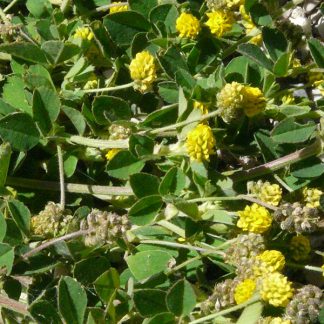Leguminosae
Showing 1–12 of 13 results
-

Astragalus miser / timber milkvetch
- compound leaves with small, egg-shaped leaflets
- teeny, pea-like flowers - bicolored but overall blue/purple
- keel tip is purple and pointed
- small, hairy seed pods
- grassland, meadows, and other open communities
-

Astragalus purshii / woollypod milkvetch
- low growing, silvery, compound leaves; no tendrils
- magenta (or white) "pea-like" flowers with darker keel petal
- "congested" inflorescence
- found in very dry areas, not in shade
-
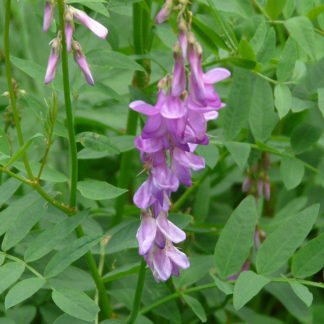
Hedysarum occidentale / western sweetvetch
- tall legume with hot pink flowers
- inflorescence several inches long; up to 80 flowers
- pinnately compound leaves with 9-21, inch-long leaflets
- higher elevations on drier, more rocky soils
-

Lotus corniculatus / birds-foot trefoil
- roadsides and other disturbed areas
- numerous bright yellow, pea-like flowers
- three, oval and pointed leaflets
- seed pods are arranged like toes on a bird's foot
-
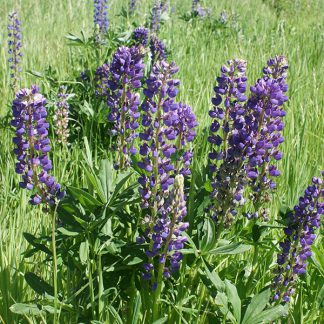
Lupinus spp. / silvery and silky lupins
- palmately compound, usually silvery-green leaves
- 5-9 leaflets per leaf; long petioles
- flowers on long, spikey racemes, blooming from bottom upward
- numerous flowers, but all rather teeny; most purple or blue
- flowers are above the leaves
- seeds in short, hairy pods
-
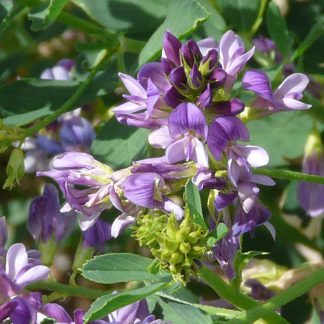
Medicago sativa / alfalfa
- escaped forage plant
- bright purple flowers in dense clusters
- pea-like flowers with broad upper petal, 2 small laterals, keel
- compound leaves with 3 leaflets, the central one extended on a short stalk
- disturbed sites - roadsides, full sun
-

Melilotus spp / sweetclover
- yellow or white, floppy, tubular flowers in long-ish clusters (racemes)
- 3 small, pointy leaflets with petioles
- rangy, unkempt branching
- roadsides, waste places and sometimes in fields, grasslands
-
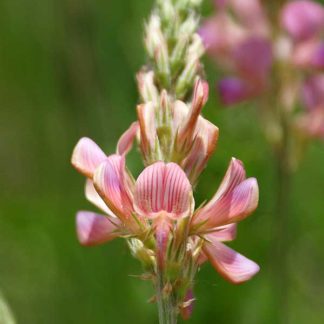
Onobrychis viciifolia / sainfoin
- forage legume, taller than alfalfa
- pink pea-like flowers with striped banner petal and darker keel
- spiky inflorescence (a raceme) blooming from bottom up - up to 50 flowers
- pinnately compound leaves with single terminal leaflet
- naturalized with sagebrush and mountain shrubs, but also in the central Valley
-

Oxytropis sericea / white-point vetch
- white "pea" flowers in clusters of up to 25
- banner petal white with purple/blue veins
- hairy, pinnately compound leaves, all basal
- disturbed areas, especially exposed to cold, drought, high light etc.
- pretty, but toxic to grazing animals
-

Scutellaria galericulata / marsh skullcap
- riparian zones and wetlands
- blue, trumpet shaped (legume) flowers; usually in pairs on same side of a stem
- flowers not at the top of the stems
- square stems, widely spaced opposite leaves; adjacent pairs at right angles
-

Trifolium longipes / long-stalked clover
- a (mostly) 3-leaf clover, leaves evenly colored
- leaves long and narrow (not rounded), toothed (small) margins
- leaves on long petioles
- flower heads on long peduncles,
Showing 1–12 of 13 results
